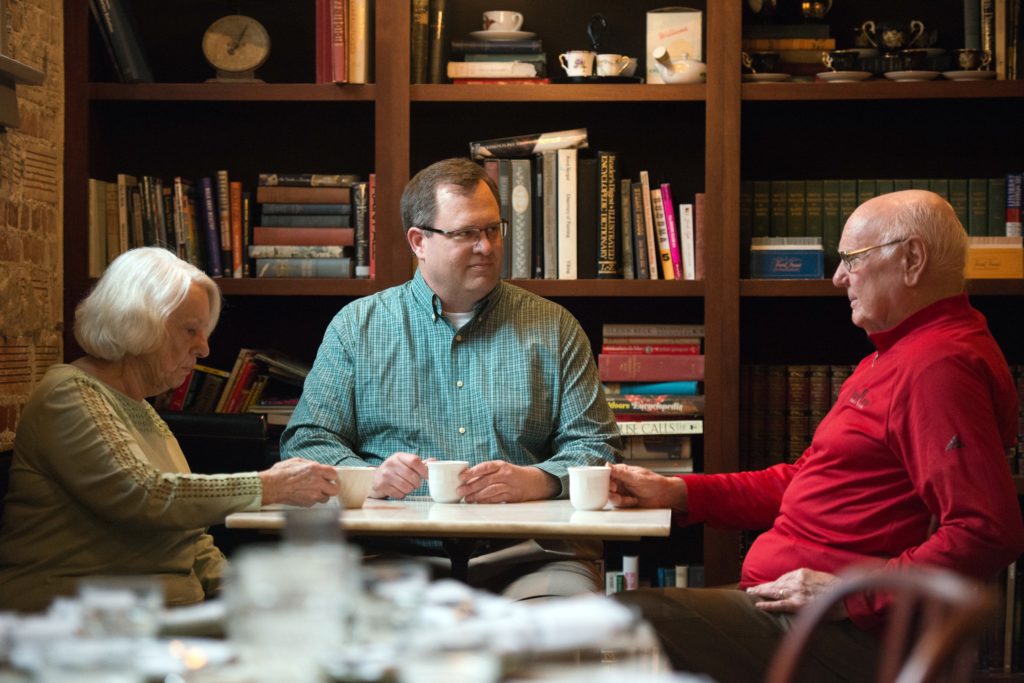You probably remember being a recipient of “The Talk” — an uncomfortable conversation somewhere during your early teenage years when a well-intentioned adult tried his or her best to explain where babies come from. For many of us, that cringe-worthy conversation was initiated by a parent, who wanted to prepare us for life and the responsibilities that come with it.
What we didn’t know at the time is that decades later that conversation would be reversed. We would be initiating the conversation, and the birds and the bees would be replaced with something just as important and revealing — end of life decisions.
End of life decisions include living wills, advanced directives, and powers of attorney. But it also includes decisions about comfort care, also referred to as palliative care, which focuses on managing symptoms and remaining comfortable at the end of life instead of choosing aggressive medical treatment that prolongs life.
Days before former first lady Barbara Bush passed away in 2018, she announced that she would be seeking comfort care at home surrounded by her family. Her decision and her openness to share it with the world sheds light on a national movement about documenting patient’s wishes before they are in the situation where they can’t make the decision themselves.
Fortunately for the Bush family, Barbara had communicated her wishes well. Her family supported her, and stood by her side during her last days. Her passing was peaceful, comfortable and dignified.
But it’s not that way for some, and it can become particularly complicated when a loved one has dementia and can’t make their wishes known. Family members of ailing loved ones are overcome with grief, don’t know that their loved one would have wanted, and err on the side of prolonging life.
As a society, we aren’t having “The Talk” soon enough, but it’s not because we don’t think it’s important. According to The Conversation Project:
- 90% of people say that talking with their loved one about end-of-life care is important, but only 27% have actually had those conversations
- Eighty two percent of people say it’s important to put their wishes in writing, but only 23% have actually done it
So why aren’t we having these conversations? It’s a difficult subject to think and talk about. Instead we procrastinate or believe we will have time. In reality, if we have those uncomfortable conversations and document our loved one’s wishes before they are ill, it will make those final days a little bit easier for everyone.
Patient advocates can’t act as our clients’ powers of attorney, but we can assist with getting those conversations started. We can help our clients understand their options, fill out the paperwork and ensure their wishes are known. Here are a few resources we recommend that can help guide you through the process and get your loved one’s affairs in order:
- The Conversation Project. This is a guide that helps you get your thoughts together and initiate those important conversations. Family members that complete the guide have a shared understanding of what matters most to their loved ones.
- The End of Life Checklist. This comprehensive checklist makes your loved one’s wishes known, and lists the location of all important documents needed to settle their estate.
- Being Mortal, By Atul Gawande. In his book, Dr. Gawande, a practicing surgeon, follows the stories of people who show us how to have the hard conversations and ensure we honor our loved ones’ decisions through the very end.
As she did during her 92 years of life, Barbara Bush set an excellent example in her death. She showed us the benefit of finding out our loved one’s wishes, documenting them, keeping it in a safe space, and when the time comes, honoring those wishes.
If you’d like to learn more about comfort care or need advice on getting “The Talk” started, please contact Guided Patient Services or visit our website. We are here for you when you need us.

